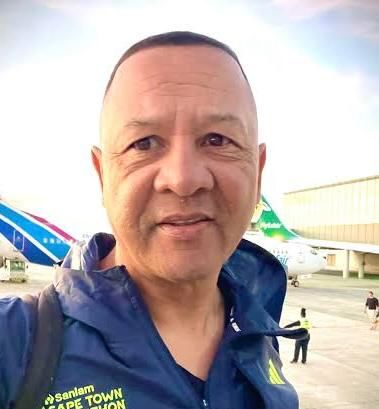In the high-stakes theatre of elite sport, stories of redemption are often romanticized. But in Luvo Manyonga’s case, redemption isn’t just a storyline — it’s a tightrope walk between brilliance and despair, between the intoxicating heights of global glory and the darkest recesses of personal struggle.

At 34, Manyonga is attempting something few have dared: a comeback not just to a sport, but to himself.
In Potchefstroom, where South Africa’s finest athletes are gathered for the ASA Senior National Championships, Manyonga is once again airborne. Each stride on the runway, each leap into the sand, tells a story of resilience — of a man who once ruled the world in long jump, fell spectacularly from grace, and now seeks flight again.
For me, jumping, it feels like freedom.
It’s not a cliché. When you’ve been shackled — by addiction, by suspension, by silence — a few suspended seconds in the air can feel like liberation.
He isn’t new to reinvention. Born in the township of Mbekweni near Paarl in the Western Cape, Manyonga first made international headlines in 2010 when he leapt to a world junior title. By 2011, he was Africa’s golden boy. But fame brought temptation, and at just 21, he was banned for testing positive for methamphetamine, locally known as tik. For many, that would’ve been the end. But not Luvo.
By 2016, he was back — and not just participating, but ascending. He claimed Olympic silver in Rio, soared to a World Championship title in London in 2017, and then topped the Commonwealth podium in 2018. That same year, he set the South African long jump record at a staggering 8.65 metres — a jump that still echoes through the annals of athletics.
But just as quickly as he rose again, the fall came.
READ MORE
Show more newsIn 2021, during the COVID-19 pandemic, Manyonga was handed a four-year ban for whereabouts violations. The ruling wasn’t for doping per se, but for repeatedly failing to provide his location for testing. The message from anti-doping authorities was clear: accountability is non-negotiable.
The silence since then has been deafening.
But silence, too, can be a crucible. Over the past four years, out of the spotlight, Manyonga has been working — on his body, yes, but more critically, on his spirit. The road back hasn’t been paved with glory or funding or fanfare. It’s been one of solitude, of early morning training sessions without an audience, of inner battles with doubt, of rebuilding a life brick by brick.
Just doing it one day at a time and just doing it for the love of the sport,” he says now, quietly, as if reminding himself. “We’re working on the plan of just trying to be fit and healthy.
This version of Manyonga is humbler. There’s no bravado, no grand pronouncements. Just a deep desire to do what he was born to do: fly. And with the World Championships in Tokyo on the horizon in September, the timing of his comeback is more than symbolic — it’s strategic.
The qualifying standard for Tokyo is 8.27 metres. It’s a distance that would challenge any 34-year-old athlete, let alone one returning from a four-year layoff. But this is Luvo Manyonga — a man who once conquered the world with a leap, and who still holds within him the muscle memory of greatness.
His coach and support team remain cautiously optimistic. The goal, for now, isn’t gold. It’s presence. Participation. Progress. Each meet, each legal jump, is a statement: I am still here. I am still fighting.
More than medals, Manyonga seems driven by something deeper — purpose.
Jumping is a nice thing for me… It’s [making] people smile. Entertaining is the best thing for me.
It’s easy to forget, in the metrics of metres and medals, that sport is also performance. And Manyonga is, at heart, a performer — one whose stage has been absent too long.
So, as he takes to the pit in Potchefstroom, eyes tracking the horizon and not the ghosts behind him, it’s not just about reclaiming a spot in the South African team. It’s about reclaiming his identity.
In a world that is quick to cancel, slow to forgive, and often blind to nuance, Manyonga’s story is complicated. It should be. He is not a neat tale of triumph. He is a mirror to the messy, human reality of talent and trauma, of choices and consequences.
And yet, with each jump, he rewrites the narrative — not erasing the past, but soaring above it.
In Potchefstroom, Luvo Manyonga doesn’t just want to soar high and far. He chases something far more elusive: redemption in flight.



















